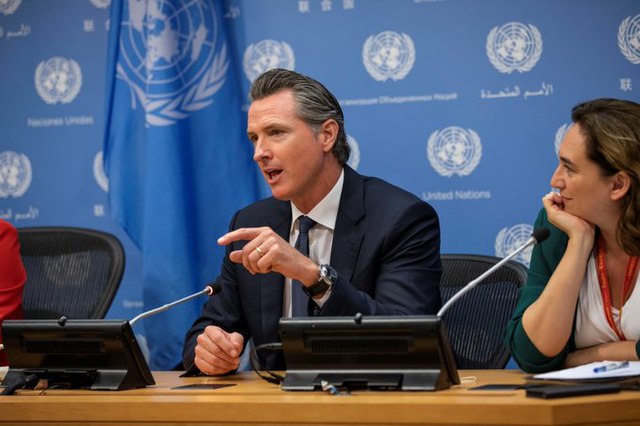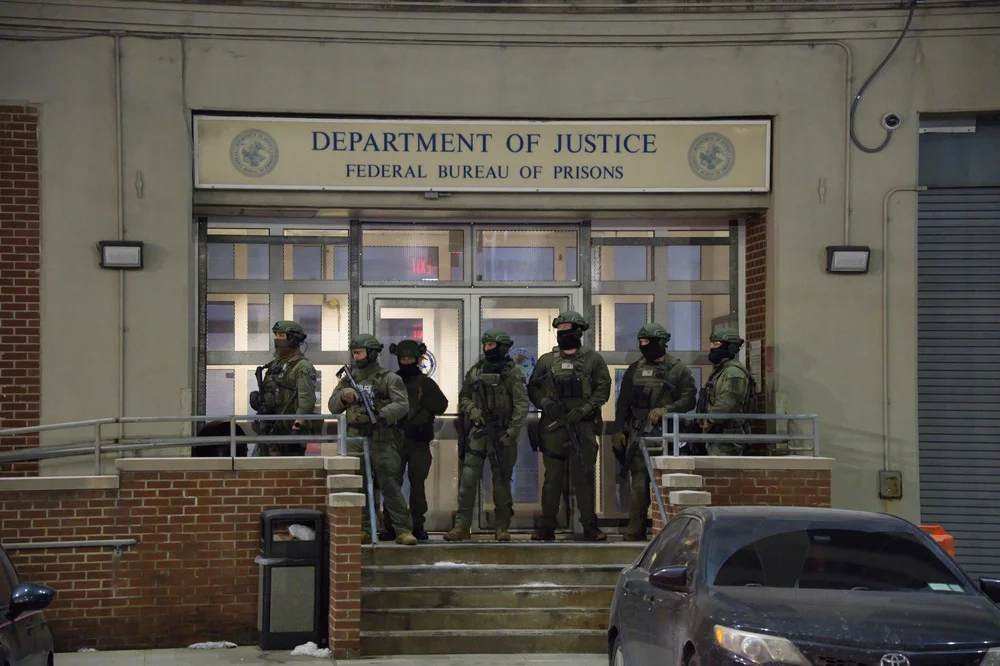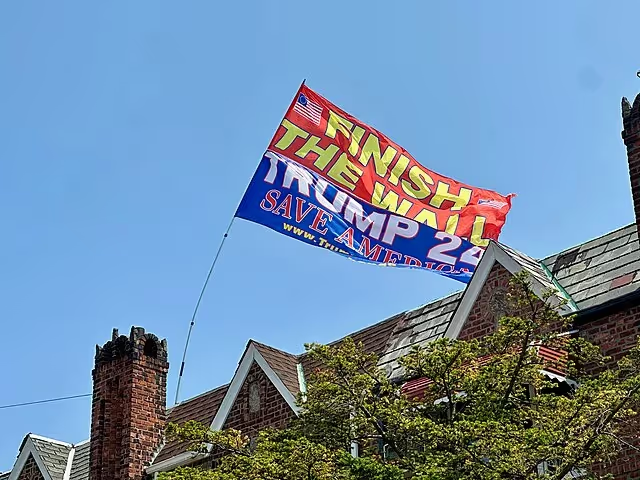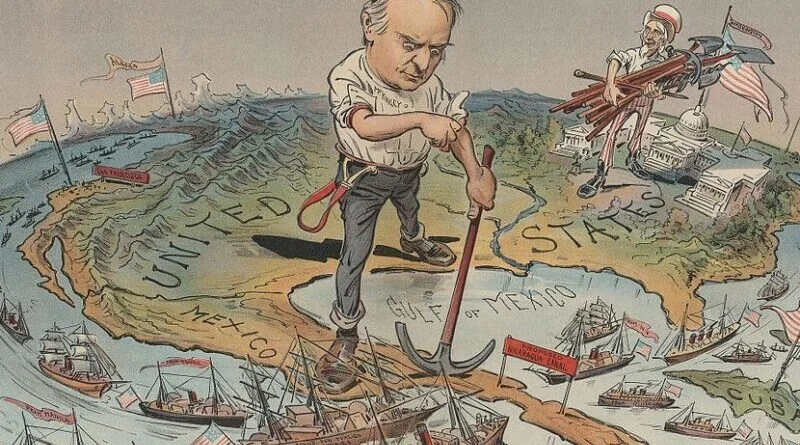
Chicago: The First Domino to Fall?
How empty pension promises pave the way for federal bailouts of cities and states.
On August 1, Illinois Governor JB Pritzker signed HB 3657 into law, increasing benefits for Chicago first responders under the Tier 2 pension system. Although mandated by policymakers in Springfield, the cost of this benefit increase will be shouldered by the City of Chicago and its taxpayers. Making a pension promise is one thing; keeping it is another.
Before HB 3657 was signed into law, Chicago faced multi-year budget shortfalls exceeding $1 billion. Unfortunately, the city’s operating deficit is just the tip of the iceberg. The mass transit agencies (CTA, Metra, Pace) are also facing a $770 million deficit in 2026. The Chicago Public School System faces a $734 million budget gap, which it must close by the end of August. While mass transit and public schools are considered “off-budget enterprises” and excluded from the city’s operating budget (the Corporate Fund), they depend upon taxpayer dollars collected by the Windy City. The city, however, cannot afford to make these kinds of promises.
While the ink was still drying on Pritzker’s signature, S&P Global Ratings warned, “With the passage of [HB 3657], the prognosis for Chicago’s long-term fiscal health has weakened.” As the city’s financial situation worsens, leaders will likely turn to state policymakers in Springfield for financial support before considering bankruptcy. Illinois, however, is in no position to help. As desperation mounts, lawmakers in Illinois and Chicago have strong incentives (and precedent) to turn to federal policymakers, hoping that taxpayers in other states can bail them out.
Another Detroit? Perhaps Worse...
Detroit’s 2013 bankruptcy offers a cautionary parallel. By the time the Motor City declared bankruptcy, it suffered from similar woes facing Chicago: massive unfunded pension liabilities (despite a state constitutional requirement to do so), budget shortfalls, and rampant corruption. However, Michigan was in far better fiscal shape than Illinois is now. Pension reforms in the late 1990s improved Michigan’s solvency, leaving it better positioned before and after the Great Recession.
Overall, research consistently shows Michigan outperforming Illinois on fiscal strength. The Hoover Institution’s Municipal Finance Fiscal Strength Index examines and aggregates “ten dimensions of financial strength” including government debt burdens, liquidity position, pension and OPEB obligations, how well a state’s general fund reserves can cover expenditures, and unrestricted net position. These positions, much like examining the financial health of a private sector entity, offer insight into the fiscal health of state and local governments, even during Detroit’s crisis in 2013 and the years that followed.
Illinois, by contrast, is not prepared to assist Chicago. The Land of Lincoln’s fiscal stress is akin to Puerto Rico in the lead-up to the Commonwealth’s 2015 budget crisis. Much like Detroit and Illinois, Puerto Rico was plagued with unfunded promised pension benefits crowding out spending on other areas of government.
In 2016, Congress passed the Puerto Rico Oversight, Management, and Economic Stability Act (PROMESA), which established the Puerto Rico Financial Oversight and Management Board (FOMB). In March 2022, a federal court confirmed a plan that reduced Puerto Rico’s debt by 80%. In July 2022, David Skeel, Chairman of the FOMB, stated that the primary goal was to prevent this from happening again in Puerto Rico.
Under the bankruptcy plan, Puerto Rico currently has a borrowing limit of $1.15 billion, about 8% of commonwealth revenues excluding federal aid. In addition, a Contingent Value Instrument is used that connects bondholder payouts to sales tax revenues. Thus, the more Puerto Rico’s economy improves, the more money bondholders receive, but bondholders will still take a large “haircut” compared to what they were initially promised when purchasing said bonds. While the Commonwealth officially exited bankruptcy in March 2022, the PROMESA Board is mandated to remain in place until Puerto Rico has four consecutive years of balanced budgets and adequate market access. In August, five of the seven board members were dismissed, slowing down the bankruptcy proceedings of its power utility, which is currently under scrutiny for alleged failure to make payments.
Puerto Rico’s bankruptcy has set a precedent for federal intervention in state and local defaults. The potential for the simultaneous fiscal meltdown of a state government and the government of that state’s largest city, however, provides a uniquely terrifying budget crisis.
Cartel Federalism: Enabling Bad Behavior
When faced with simultaneous budget stress, policymakers in Springfield and Chicago may turn to the federal government for financial support. The federal government has already encouraged such an ask by providing budget support through federal transfers, even during times of relative prosperity. The state of Illinois has relied on federal transfers to cover, on average, nearly a quarter of its spending every year since the Great Recession. While data are not as readily available for Chicago, it is estimated that about 12 percent of the city’s Corporate Fund comes from intergovernmental transfers from both Springfield and DC.
This dependence on transfer payments encourages what Legal Scholar Michael Greve calls “cartel federalism…the displacement of institutional competition with the production and distribution of rents among politicians, bureaucrats, and concentrated industry sectors.” Such an arrangement allows for federal influence in state and local affairs and allows state policymakers to increase spending at the expense of federal taxpayers in other states.
In a forthcoming white paper for AIER, I discuss the impact of the Federal Reserve Municipal Liquidity Facility (MLF) loans on the only two recipients of MLF loans: the State of Illinois and the New York Metropolitan Transportation Authority (MTA). The MLF provided loans at below-market interest rates to these entities (both teetering on junk bond status), required no changes to fiscal policy, and were backstopped by the Treasury if borrowers did not pay the loans back (both entities, however, did pay them back). While the loans did not appear to influence the fiscal strength (as measured by the Hoover indices described above) of either entity, the loans did blur the boundaries between fiscal and monetary policy.
The Fed’s actions were supposedly justified on the grounds of promoting general liquidity for financial markets and managing the overall supply of money and credit. On the contrary, the MLF served to provide specific loans to Illinois and the MTA under the direction of the CARES Act. It was about the distribution of credit (a core fiscal issue) using political and budgetary priorities. By creating and utilizing the MLF, it empowered Congress to increase its influence over the Fed. Removing the boundaries between fiscal and monetary policy means that such an emergency lending facility creates a backdoor fiscal policy, raises the risk of political credit allocation, and enables state and local governments to lobby the Fed in the hopes of getting below-market borrowing rates such as the ones offered by the MLF. Potentially, Illinois may face an oversight board similar to Puerto Rico's, while a separate oversight board manages Chicago’s finances. This will result in painful restructuring for those who have not yet fled the Land of Lincoln.
How to Avoid Enabling Bad Behavior
A similar scenario occurred when New York City faced a fiscal crisis in the 1970s. During the 1960’s and 1970’s, the Big Apple chased hundreds of thousands of jobs and successful businesses out of the city with tax hikes aimed at supporting a bloated public sector. Sound familiar?
When bond investors refused to purchase the city’s debt outright because they knew it lacked the legally required tax receipts to secure the bond issue, the city received federal and state aid via a Municipal Assistance Corporation (MAC) and the Emergency Financial Control Board (EFCB). The Big Apple did not make a full financial recovery until 1985, when MAC was no longer needed.
The danger of a contemporary Chicago (or any major US city) default comes from the precedent set by the MLF, allowing the Fed to intervene in the municipal bond market. A response to city fiscal crises could be the creation of a hybrid MAC and MLF. This Frankenstein’s monster would issue below-market interest rate loans with little to no austerity measures required, funded by newly printed money from the Fed and guaranteed by federal taxpayer dollars. A terrifying thought.
Fortunately, there are alternatives, but they are likely unfeasible. Enacting pension reforms for new hires (including reversing the Tier II changes) would reduce unfunded liabilities and spending reforms would bring spending down to par with revenue. Most policymakers, whether in Springfield or Chicago, do not seem to have an appetite for any such measures. Outside of seeking federal assistance, the state and city can attempt to negotiate with bondholders for longer maturities or lower interest rates to ease short-term fiscal pressure, but it will not provide the structural changes necessary to make permanent change.
When Springfield likely returns to DC seeking additional assistance, federal policymakers must not repeat the mistakes of the MLF. Instead, DC must require the state to make the deep structural changes, such as adopting a Taxpayer’s Bill of Rights Amendment like Colorado, to prevent a cycle of dependency that has Americans nationwide to pay for the irresponsibility of one state’s policymakers. If we fail to do so, we risk repeating this process for every state that decides to gamble on reckless fiscal policy.
Both fiscal and monetary policy must be bound by rules at the federal level, preventing mission creep in either space. States must also embrace strong fiscal rules that constrain spending and allow legislative oversight on state executive agencies receiving federal grants and funding to reduce cartel federalism. These reforms will face political and institutional resistance. Without them, however, we risk further enabling bad behavior.
Thomas Savidge is a Research Fellow at the American Institute for Economic Research. Follow him on X.com at @thomas_savidge.
Politics
.webp)
Liberal Democracy Reexamined: Leo Strauss on Alexis de Tocqueville
This article explores Leo Strauss’s thoughts on Alexis de Tocqueville in his 1954 “Natural Right” course transcript.
%20(1).avif)
Long Distance Migration as a Two-Step Sorting Process: The Resettlement of Californians in Texas
Here we press the question of whether the well-documented stream of migrants relocating from California to Texas has been sufficient to alter the political complexion of the destination state.
%20(3).avif)
Who's That Knocking? A Study of the Strategic Choices Facing Large-Scale Grassroots Canvassing Efforts
Although there is a consensus that personalized forms of campaign outreach are more likely to be effective at either mobilizing or even persuading voters, there remains uncertainty about how campaigns should implement get-out-the-vote (GOTV) programs, especially at a truly expansive scale.

There's a Perception Gap With the U.S. Economy
As we approach another election cycle, it’s worth asking: what’s real, what’s political theater, and what does it all mean if Democrats regain control of the House?

International Law Is Holding Democracies Back
The United States should use this moment to argue for a different approach to the rules of war.

Trump purged America’s Leftist toxins. Now hubris will be his downfall
From ending DEI madness and net zero to securing the border, he’ll leave the US stronger. But his excesses are inciting a Left-wing backlash

California’s wealth tax tests the limits of progressive politics
Until the country finds a way to convince the average American that extreme wealth does not come at their expense, both the oligarchs and the heavily Democratic professional classes risk experiencing serious tax raids unseen for decades.

A Separate American Freedom Bloc?
Global trade is not ending anytime soon, but the trading partners involved are facing strategic realignment.

The Venezuela Symposium
Eight Latin American contributors discuss Venezuela's future and its wider consequences for the region.












